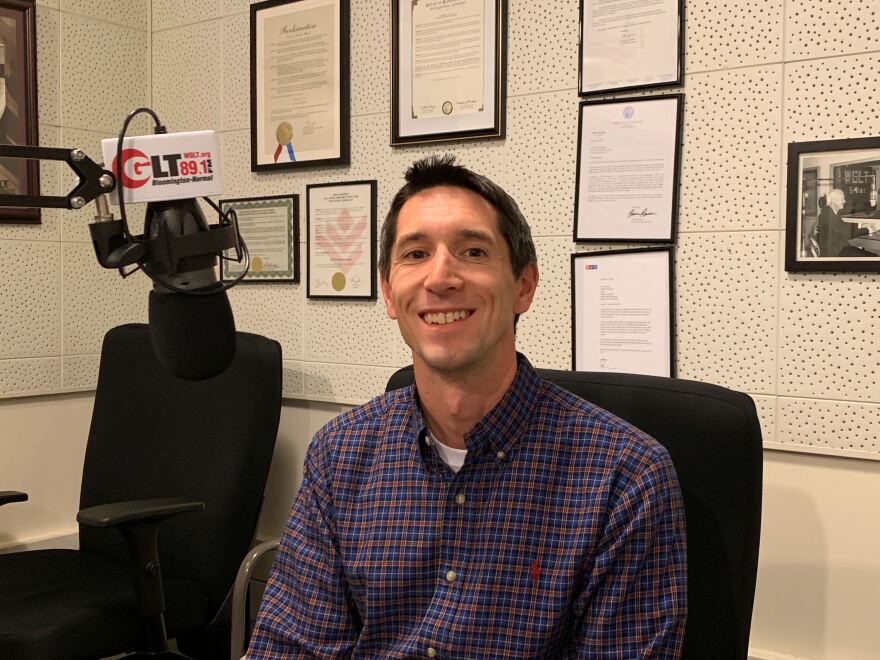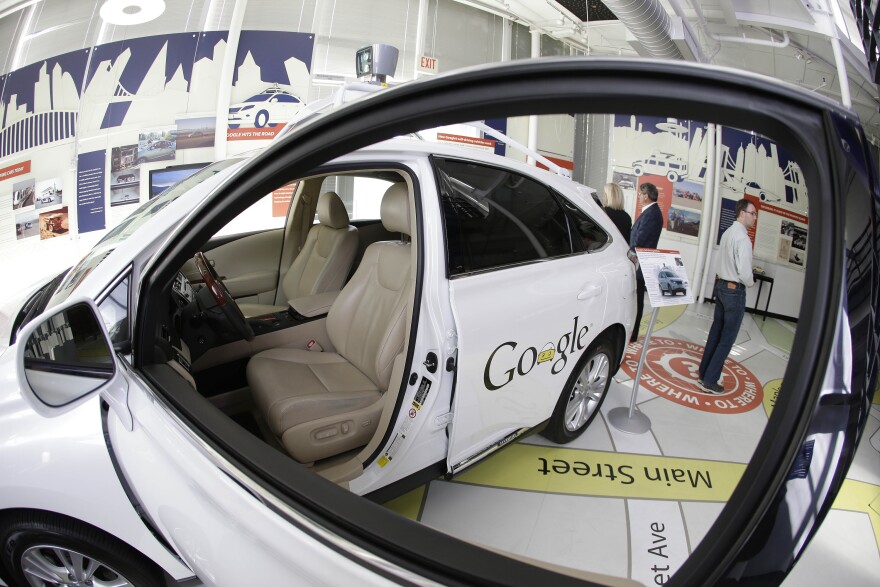Editor’s note: This story is part of a special episode of GLT’s Sound Ideas focused entirely on autonomous driving. It aired Nov. 21. Read more stories in the series.
America's fascination with cars dates back to Henry Ford's Model T. From there, realities turned to wishes when The Jetson's 1960 cartoon made the flying car a vision for the future.
Today's cars don't fly, but they soon might drive themselves.
Todd Chapman is a resident of Bloomington. He said he’s looking forward to seeing more self-driving cars on the road for safety reasons.
By taking the wheel out of human hands, he said that leaves less room for human error.
“We were on a family vacation last summer driving on the interstate, and there was a semi-truck that just didn't see us next to it and just merged over, and we managed to kind of go on the shoulder real briefly. It wasn't an accident, we weren't that much in danger or anything,” Chapman said. “But I remember thinking, probably just because I had read a news report before that that a self-driving car wouldn't have made that move, and wouldn't have veered into our lane because they would've known we were right there.”

Chapman said he knows a couple of people who rode in self-driving cars, and he is looking forward his first ride.
But what about his kids? Would Chapman willingly place his children in an autonomous vehicle to take them to school?
“Not yet,” he said, shaking his head. “Maybe once I have more experience, or some experience, in these types of vehicles, I might be more comfortable, but down the road, sure. That's likely to be a reality. But I'm not quite there yet.”
That seems to be a common answer. People are excited for their first ride, but hesitate when asked about putting their loved ones in the computer-driven car.
Normal resident Robin Levine has an 18-year-old son. He said the technology needs more work first before he would feel comfortable having his son ride in one.
But Levine said he looks forward to the day he calls, or orders, a self-driving car to take him to work.
Daniel McClure is also a resident in Normal. He considers himself to be “very pro self-driving vehicles.” He said they are safer than the human driver alternative.
“As humans we can only focus on one thing at a time,” McClure explained. “Self-driving cars, on the other hand, will have the potential for being able to focus on everything at one time. And so, the limitations that humans introduce into the equation of car driving is a limitation that computers, they just won't have.”
Earlier this year, Uber suspended its self-driving car service in Arizona after one of the company’s autonomous vehicles hit and killed a pedestrian.
McClure said loss of life is always concerning, but car accidents are the third leading cause of fatalities in the U.S.
“And so one person perishing from a self-driving car is in itself very sad, and something that we need to look at to prevent,” he said. “However, there are so many other people that perish every day needlessly because of the reasons like intoxication, just simply being distracted from a radio, phones and whatnot, or even just other things on the road.”
The Centers for Disease Control puts vehicle accidents behind heart disease and cancer.
Chapman agrees, citing another CDC statistic that over 30,000 people die each year in the U.S. as a result of those accidents. He said the Uber self-driving accident is cause for some hesitation, but “I don't think it's a cause for panic, but it's a realization that the technology is not 100 percent there yet. There's gonna be some likely other incidents like this along the way.”
Chapman said the public needs to think realistically and realize that accidents are going to happen. But, he said self-driving cars is an improvement from human error.
“Let's get it as good as we possibly can, and then figure out how to make it as safe as possible,” he said. “There's never going to be, or it's going to be a long time before there's zero highway deaths. Whether it's self-driving cars or human drivers.”
Chapman said the unpredictable nature of humans is likely too much for the computers inside self-driving cars to understand. He said that will no doubt lead to difficulties, but it doesn’t mean stop improving the technology.
“I don't know if there's, with artificial intelligence, if they can start learning how to predict how humans may behave unpredictably, whatever, if that even makes sense,” Chapman laughed. “But the technology is becoming so advanced I would think that there's going to be some improvement in that aspect.”
But, Chapman said some of that responsibility falls on the human. He said people need to be aware this technology is out there, and drive and act differently as a result.
Levine expressed similar sentiments.
He said as self-driving cars are slowly introduced to more towns and cities, they should be clearly marked to notify nearby human drivers and pedestrians.
So, will self-driving cars make life easier for Levine?
“Undoubtedly,” Levine said. “Not having to worry about car maintenance, not having to worry about where I'm going to park the car, all I have to do is wake up in the morning and probably go to the computer and say I need a car to take me from home to work, and magically, this shows up and takes me there.”
He also noted possible safety improvements when it comes to driving in inclement weather.
“On days like this with the snow out there, I just would assume I'd not have to worry about all the potential things that could go wrong with driving. The slippery roads, the other drivers, I'd much rather leave it to a computer which is very precise,” he said.

Along with increased safety, self-driving vehicles allow passengers to take time usually spent driving and devote it to other tasks.
McClure is a landscape designer. He said he spends a chunk of time each day driving to meetings with customers and clients.
“I find myself just constantly annoyed at the amount of time that is lost every day that I could be even behind the wheel, but preparing for a meeting, doing some reading on the topics of the day,” he said.
McClure added accessibility to that list of positives, noting that autonomous vehicles add mobility to elderly populations who are no longer medically able to drive and lower income populations who might not be able to afford a car.
People like you value experienced, knowledgeable and award-winning journalism that covers meaningful stories in Bloomington-Normal. To support more stories and interviews like this one, please consider making a contribution.


